“The heat was just so dense and thick.”
Sophie Thomas
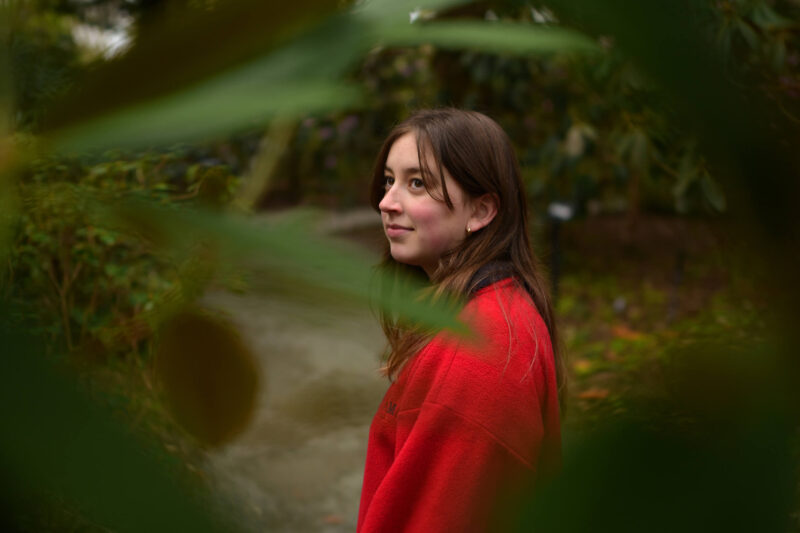
Sophie is a writing student currently studying on the unceded territory of the Lekwungen and W̱SÁNEĆ nations. She grew up in Nanaimo, a small harbour city on Vancouver Island, British Columbia, with her mother, step-father, sister and dog Freya. Her childhood was spent immersed in nature, riding ATVs with her family, and summertime camping in Miller Creek, a small campground situated next to a large lake.
While she grew up in Nanaimo, she has found home for her to be with the people, places and feelings she connects with. “I feel like home isn’t necessarily a house for me,” she said, “I think I could go to Miller Creek Campground and that would feel like home. It isn’t home itself. But that feels like home. It has a bit of the home essence.”
In her spare time she likes to paint, finding inspiration in many mediums and muses including landscapes, mountains, snakes, octopuses, watercolour whales, and nude figures. She hopes to live out the “easel dream” by hauling one to the beach and painting in nature. After graduation, Sophie plans to combine that love of painting with her degree to write and illustrate children’s books.
I remember that whole week I was working. I work on BC Ferries and they have air conditioning. I think we started at 5:00 in the morning or 5:30 in the morning. Normally I get there half an hour early. And I remember getting up at 3:30 in the morning being like it is so, so hot in this house. I can’t even breathe. I just need to drive to work and get to work so I can sit in the air conditioning.
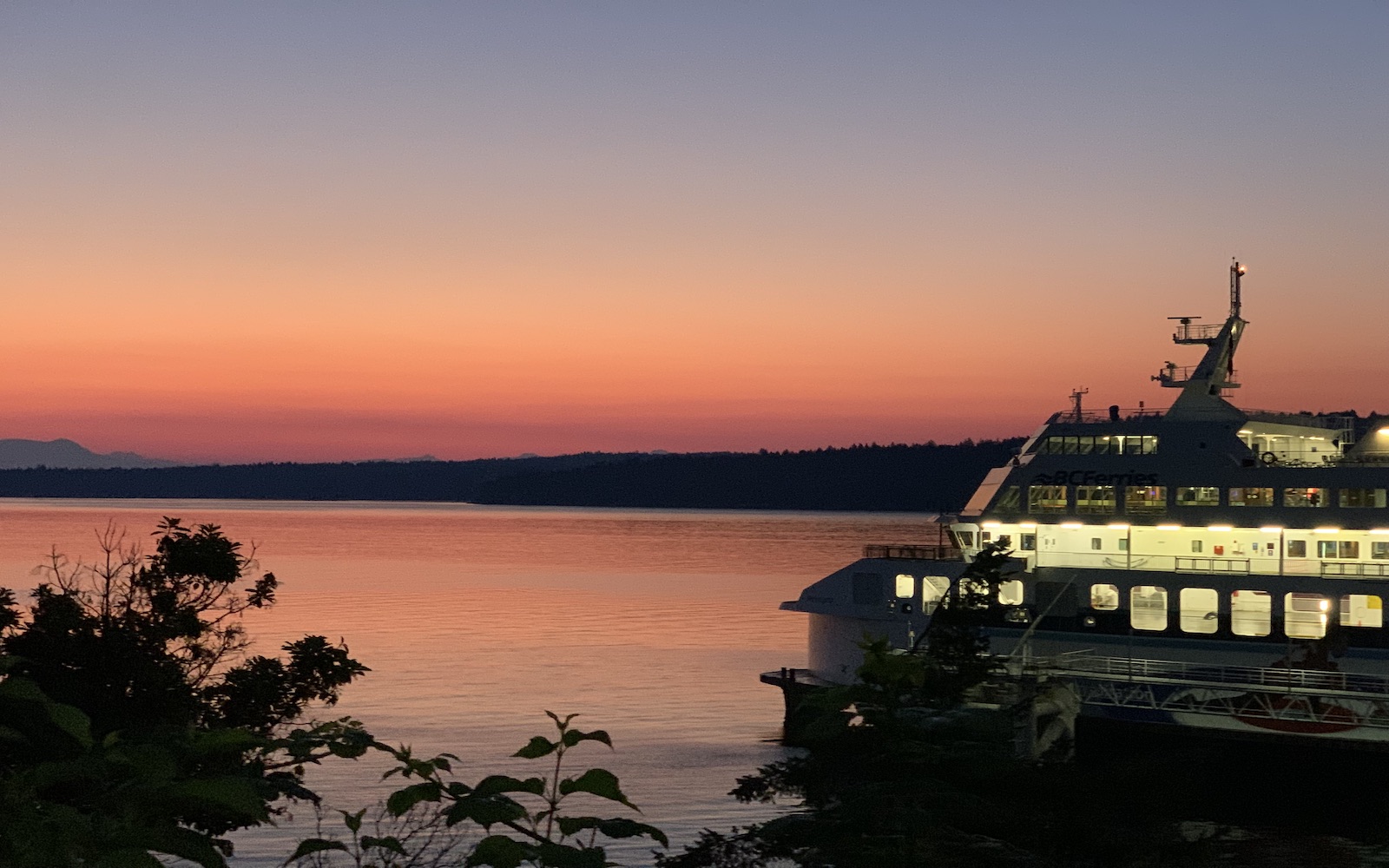
Sophie Thomas was working at BC Ferries during the 2021 Western North America heat wave. (CDP Photo/Sophie Thomas)
The house that I grew up in is right by a lake, probably a ten minute walk from our house. I would go to work and I would come home and I’d go right to the lake. My parents would be there from the time they woke up with our dog to the time the sun went down. And so every day, after work or before work, we would just be in the water the whole day.
The lake is normally a cold lake. It’s nice and refreshing to go in there. You can be cold if you sit in there forever. But the lake was actually bath water, it was so warm. And that is not normal for here. But even being in the warm bath water lake was better than being at home in the heat. It’s kind of freaky being like, “I am so hot I’m gonna go swim in bath water to cool down because the bath water lake was cooler than the air.”
And there’s Westwood Ridge. It’s just a big hill on the other side of the lake. Normally it’s huge. You can see all of it. But it was so strong and sunny that the sky was completely pink and just blurry almost. You could kind of make out the ridge but it was mainly just pink blur. The heat was just so dense and thick. If you looked into the background, where the ridges are, it was smoky. And it was just pink blurry sky.

Sophie Thomas would meet her parents after work during the 2021 western North American heat wave to cool off in the lake by their house. (CDP Photo/Sophie Thomas)
As far as coping goes, I just do things that make me happy and don’t let me get consumed by climate change. Because I know that if I think about it—I do think about it—but if I let it all in, every bit of it, I will get consumed. So I think that I’ll think about it to some extent, and then I’ll be like, okay, I need a break. I can’t think about it all the time, which sucks. It makes me feel like I could be doing more. I could be thinking about it all the time. But It hurts to think about it all the time. I’m just gonna paint and listen to music and lock myself away and not think about it. I could be thinking about it. But it rips up my brain.
I’d probably drop out of university. Like what am I doing that for? I don’t know what’s gonna happen. I’m just gonna leave and go live in a cottage and get a couple of different dogs and maybe some sheep. I would have a vegetable garden and I wouldn’t have a phone so I couldn’t listen to the news and couldn’t think about climate change. I would probably go from thinking about it all the time to being, excuse my language, “Fuck that shit,” and never thinking about it again. Living in a cottage in the mountains and not talking to anybody or anything ever again.
I think I have so many visions for—I had so many visions for my life. I still have so many visions for my life. And I don’t know which ones are going to play out and which ones won’t. But I think climate change impacts the visions that I have for myself now and for myself in the future. Because one thing that really freaks me out and kind of worries me is where the world is going to be. We’ve kind of set in motion all of these changes that are going to happen and most of them are irreversible for the next thirty years.
I would like to be able to advocate for our Earth, because I love her so much. I want to learn more about it and learn how to write about it. Because I think that artists are who we turn to when you are in the fricking pit of despair. You’re gonna go pick up a book, or you’re going to listen to music, or you’re going to look at paintings or whatever. And that’s who we turn to when we’re struggling.
This testimony was originally published in the Royal British Columbia Museum, on January 16, 2023.
Related Stories
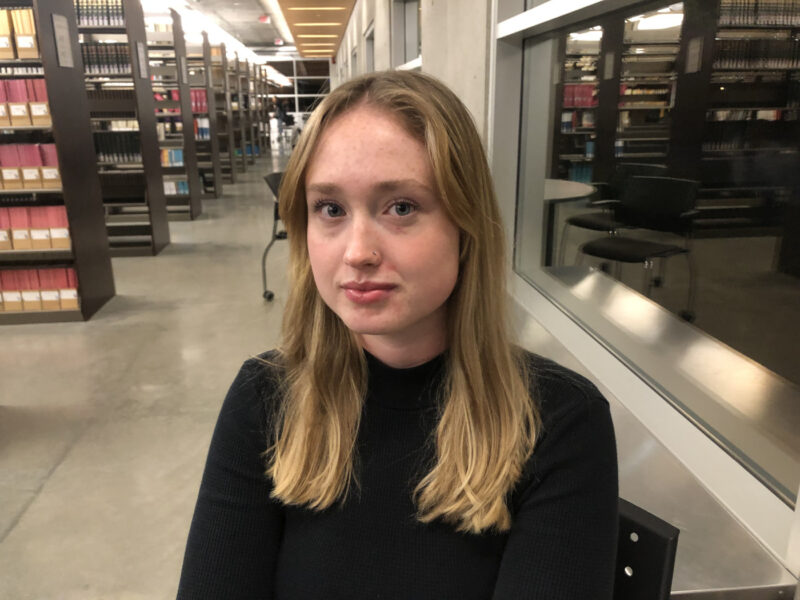
Claudia Culley, Clearwater, Canada
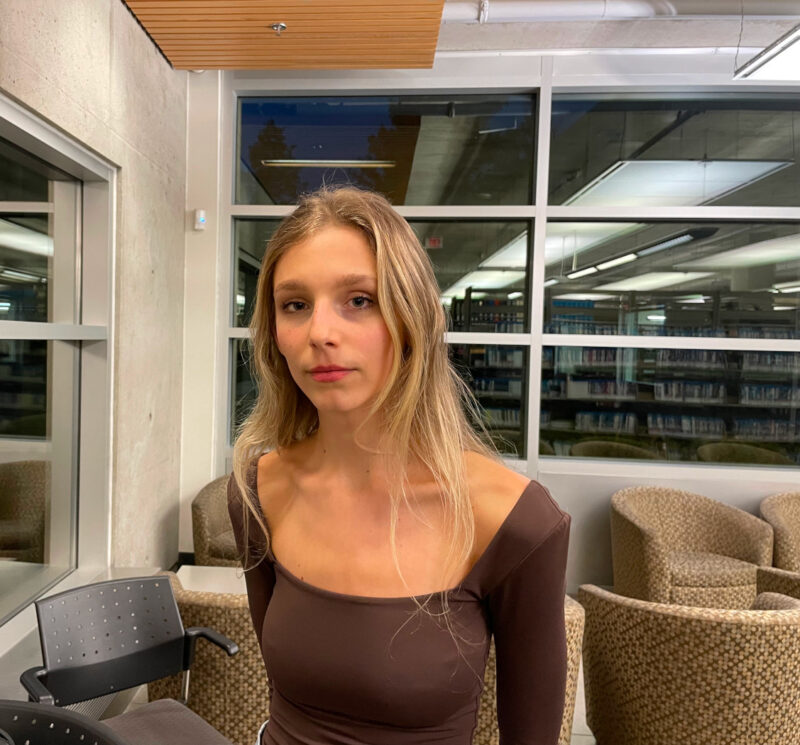
Jasna Rowse, Langley, Canada
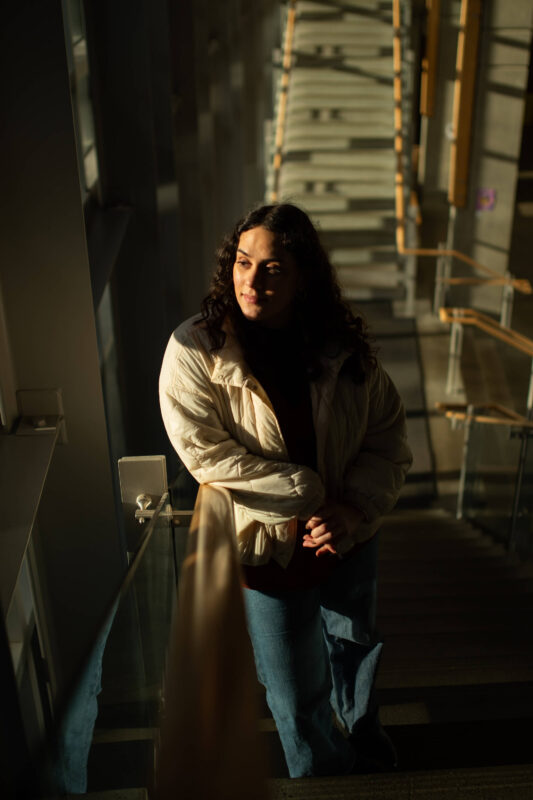
Kristen De Jager, Langley, Canada